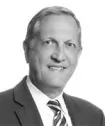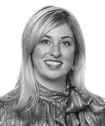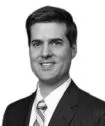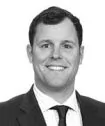The public impeachment hearings completed their second and final week last week, and continued to give the American public an inside view of who and what was involved with Ukraine diplomacy in the Trump administration. The most damning testimony was given by Gordon Sondland, President Trump's ambassador to the EU and a large donor to his inauguration, who confirmed that there was a quid pro quo that was driven by Rudy Giuliani at the request of the President. A number of other career diplomats and foreign policy experts also provided a public version of their closed-door testimony and answered questions from both Democrats and Republicans on the Intelligence Committee. Ultimately, it remains to be seen how effective the public hearings were in shaping public opinion about the case for impeachment, but not surprisingly both parties are claiming the upper hand as we head into the next phase of the impeachment inquiry.
With the House in its Thanksgiving recess this week, Intelligence Committee Chairman Adam Schiff will turn his attention to drafting, along with the Foreign Affairs and Oversight Committees, a report summarizing findings and recommendations regarding impeachment to be submitted to the House Judiciary Committee. Based on this report, Chairman Jerrold Nadler will then draft articles of impeachment to be considered by the full Judiciary Committee and, if approved, submitted to the full House likely in mid-December. If the House approves articles of impeachment, the Senate will then schedule an impeachment trial. Reports have surfaced that the White House and top Senate Republicans are having discussions about limiting the length of the trial to two weeks.
Last week's hearings started on Tuesday morning with testimony from Lt. Col. Alexander Vindman; the top Ukraine expert on the National Security Council, and Jennifer Williams, a national security aide to Vice President Mike Pence. In the afternoon, the Intelligence Committee heard from Kurt Volker; President Trump's former special envoy to Ukraine, and Tim Morrison; a former top National Security Council official.
Lt. Col. Vindman, who was on the July 25 Ukraine call between President Trump and President Zelensky, testified that President Trump's request for President Zelensky to initiate investigations was likely viewed as a demand due to the circumstances of Ukraine and its urgent need for military aid. Both Williams and Vindman said that holding up military aid was beneficial to Russia and that any wavering in US support is a green light for more Russian aggression into Ukraine.
In the afternoon block, Volker separated himself from the link between the hold on security assistance and Ukrainian investigations into the Bidens, despite accounts of Volker, Energy Secretary Rick Perry and Sondland calling themselves the "three amigos," coined for their role in Ukrainian policy. Tim Morrison touched on the hierarchal issues within the National Security Council and how Sondland was subverting leadership within the administration. Internally, the issues were called "the Gordon problem."
On Wednesday, Sondland told House investigators that Giuliani's requests regarding arranging a White House visit for President Zelensky were a quid pro quo, and that Giuliani was expressing the desires of President Trump. His testimony was the most consequential one yet for the President and his allies. Sondland, who spent most of his career as a hotelier, implicated several other players in the decision to leverage a White House meeting and military aid to obtain an announcement of investigations into the Ukrainian oil company Burisma, of which Hunter Biden was a board member. According to Sondland, those who were aware of the quid pro quo were Pence, Perry, Secretary of State Mike Pompeo and White House acting Chief of Staff Mick Mulvaney.
Following the testimony, Republican lawmakers on the Intelligence Committee attempted to quickly coordinate a defense. Rep. Jim Jordan, who has been one of President Trump's most loyal defenders in the face of impeachment, focused on a conversation Sondland had with the President on September 9 in which the President told Sondland that he did not want a quid pro quo with Ukraine. Although the interaction between President Trump and Sondland sounds exculpatory, the call between the two happened more than a week after White House counsel was informed about the existence of a whistleblower complaint.
Later that evening, David Hale, Under Secretary of State for Political Affairs, and Laura Cooper, Deputy Assistant Secretary of Defense for Russia, Ukraine and Eurasia, also testified. Cooper revealed to investigators that the Ukrainian embassy asked about the status of the military aid on July 25, the day of the phone call between President Trump and President Zelensky.
To round out the week, Fiona Hill, the former National Security Council Senior Director for Europe and Russia testified alongside David Holmes, Counselor for Political Affairs at the U.S. Embassy in Ukraine. In Hill's opening statement, she confronted Republicans lawmakers who have entertained the narrative that Ukraine, not Russia, meddled with the 2016 election. Holmes, who appeared for a closed-door deposition on November 15 after Ambassador William Taylor revealed in his testimony that Holmes told him he overheard President Trump and Sondland speak on the phone. During his public testimony, Holmes described the call and said that he could clearly hear President Trump ask about the status of the Ukrainian announcement of investigations into the Bidens.
Finally, another development is worth noting. On December 10, a federal judge will rule on whether former National Security Adviser John Bolton and Charles Kupperman, a former top official on the National Security Council, must comply with a congressional subpoena. Of all the witnesses so far, Bolton has the potential to be the most consequential, given that while National Security Advisor, he was directly involved in many of the meetings and conversations that other witnesses have testified about.
About Dentons
Dentons is the world's first polycentric global law firm. A top 20 firm on the Acritas 2015 Global Elite Brand Index, the Firm is committed to challenging the status quo in delivering consistent and uncompromising quality and value in new and inventive ways. Driven to provide clients a competitive edge, and connected to the communities where its clients want to do business, Dentons knows that understanding local cultures is crucial to successfully completing a deal, resolving a dispute or solving a business challenge. Now the world's largest law firm, Dentons' global team builds agile, tailored solutions to meet the local, national and global needs of private and public clients of any size in more than 125 locations serving 50-plus countries. www.dentons.com.
The content of this article is intended to provide a general guide to the subject matter. Specialist advice should be sought about your specific circumstances.




